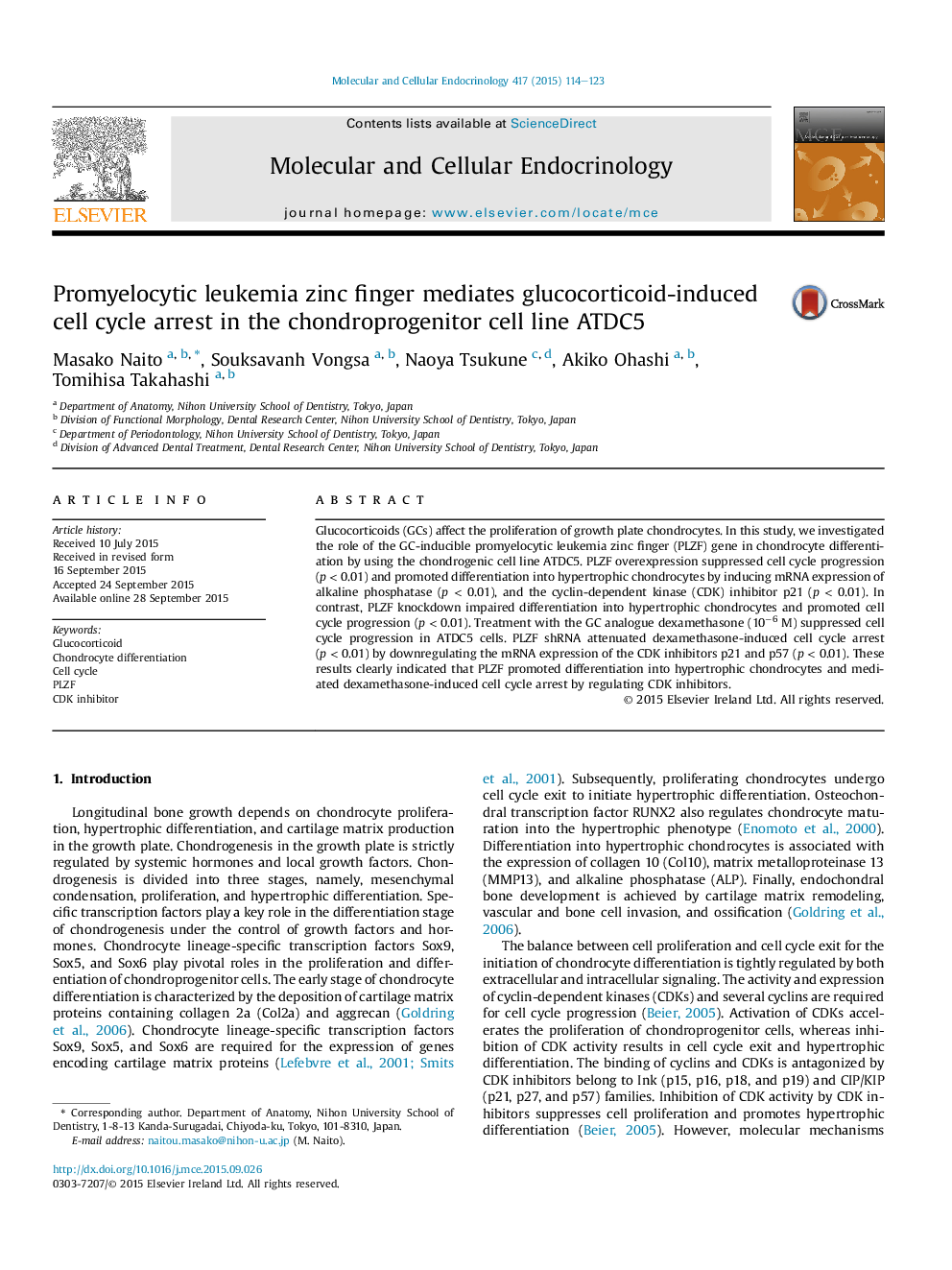| Article ID | Journal | Published Year | Pages | File Type |
|---|---|---|---|---|
| 8476891 | Molecular and Cellular Endocrinology | 2015 | 10 Pages |
Abstract
Glucocorticoids (GCs) affect the proliferation of growth plate chondrocytes. In this study, we investigated the role of the GC-inducible promyelocytic leukemia zinc finger (PLZF) gene in chondrocyte differentiation by using the chondrogenic cell line ATDC5. PLZF overexpression suppressed cell cycle progression (p < 0.01) and promoted differentiation into hypertrophic chondrocytes by inducing mRNA expression of alkaline phosphatase (p < 0.01), and the cyclin-dependent kinase (CDK) inhibitor p21 (p < 0.01). In contrast, PLZF knockdown impaired differentiation into hypertrophic chondrocytes and promoted cell cycle progression (p < 0.01). Treatment with the GC analogue dexamethasone (10â6 M) suppressed cell cycle progression in ATDC5 cells. PLZF shRNA attenuated dexamethasone-induced cell cycle arrest (p < 0.01) by downregulating the mRNA expression of the CDK inhibitors p21 and p57 (p < 0.01). These results clearly indicated that PLZF promoted differentiation into hypertrophic chondrocytes and mediated dexamethasone-induced cell cycle arrest by regulating CDK inhibitors.
Related Topics
Life Sciences
Biochemistry, Genetics and Molecular Biology
Cell Biology
Authors
Masako Naito, Souksavanh Vongsa, Naoya Tsukune, Akiko Ohashi, Tomihisa Takahashi,
